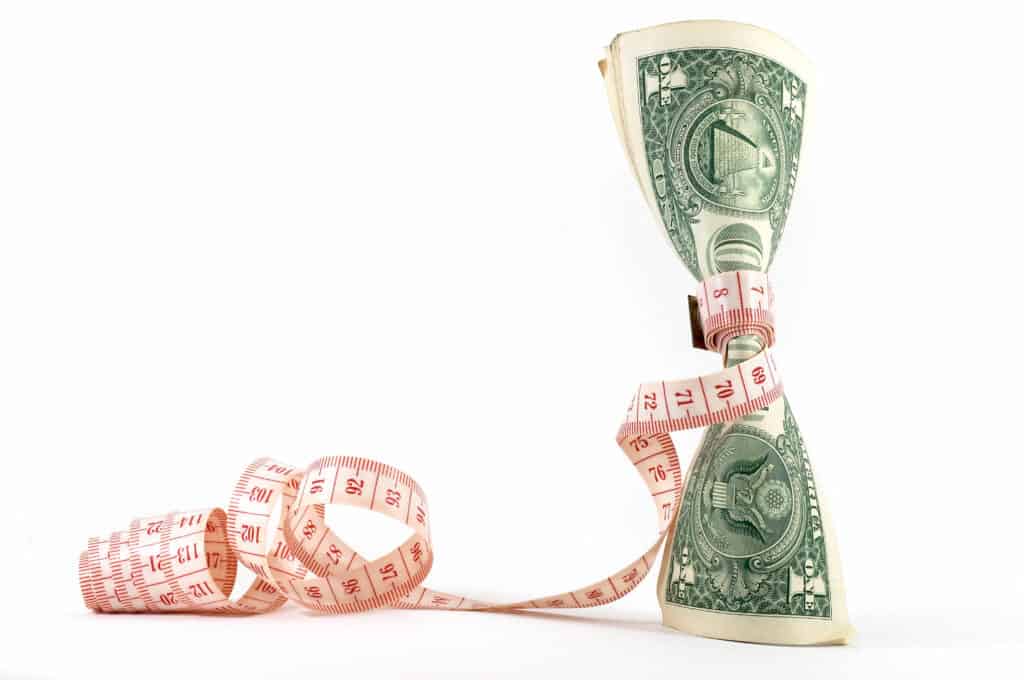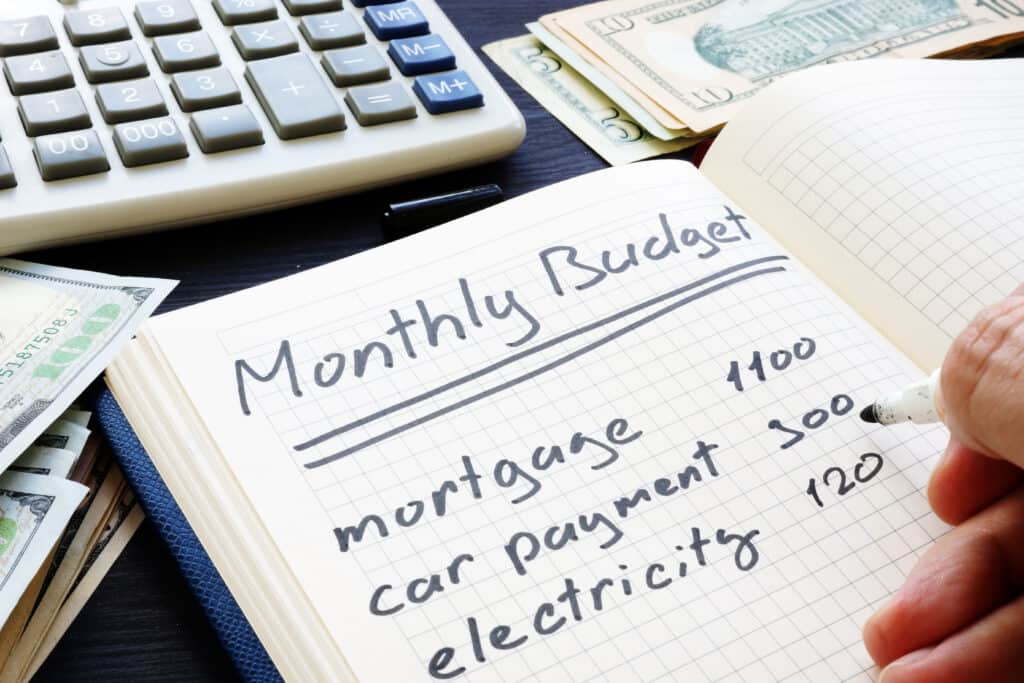Budgeting is one of the essential financial practices that we must all learn as adults. It allows us to take control of our finances by creating a plan and anticipating our expenses. Among the most common expenses are those that we make regularly or those that recur over time. Examples of these expenses are rent, mortgages, utilities, subscriptions, and more. When it comes to budgeting, we must look at these recurring expenses carefully. In this article, we’ll delve into why recurring expenses should be part of your budgeting process.
Want to see your credit score for free and be able to use many financial tools right now? Just click here!

Understanding What Recurring Expenses Are
Do you often find yourself struggling with sticking to your budget? Do you feel like no matter how much you try, your expenses always exceed your income? If you’re nodding along, it’s time to look at your recurring expenses. Recurring expenses are the expenses you incur regularly – weekly, monthly, quarterly, or yearly. Understanding these expenses and managing them wisely can help you make significant progress toward your financial goals. Let’s take a closer look at what recurring expenses are and how they can impact your budget.
What are recurring expenses?
Recurring expenses are the expenses that you have to pay on an ongoing basis. For instance, your rent or mortgage, utility bills like electric, gas, and water, phone bills, insurance premiums, and subscription services like Netflix or Spotify. Recurring expenses can be classified into two types – fixed and variable. Fixed recurring expenses, like your rent or mortgage, stay constant each month, while variable recurring expenses, like your utility bills, can fluctuate from month to month.
Why are recurring expenses important to manage?
Recurring expenses can have a sizable impact on your budget. They can add up quickly, and if you’re not tracking them accurately, it can be easy to overspend. For instance, if you don’t keep an eye on your subscription services, you could end up paying for services that you don’t use or need. Additionally, changes in your recurring expenses, like an increase in your insurance premium, can significantly affect your budget when unplanned.
How to manage recurring expenses?
The first step in managing your recurring expenses is to identify them. Go over your bank statements and bills from the past few months and note all the recurring expenses. Once you’ve identified these expenses, scrutinize them, identifying any areas where you can cut back. Perhaps you could downgrade your internet plan or switch to a new service provider to save money. Additionally, you can automate your recurring expenses to avoid missing payments and incurring late fees.
Click Here to Check Your Credit Score for Free!
When to look at recurring expenses in your budget?
It’s essential to have a comprehensive view of your recurring expenses when you’re creating or revising your budget. Understanding how much you spend each month on recurring expenses has a significant impact on how much you can allocate to savings or discretionary spending. It’s critical to keep reviewing your recurring expenses regularly, at least every six months, to ensure that you’re not overspending.
Establishing Your Financial Goals
If you’re thinking about improving your financial health, it’s essential to get a handle on your expenses – both the ones you have now and those you’ll have in the future. While most people do a good job of tracking their monthly spending, some expenses are overlooked. Specifically, recurring expenses can add up over time, throwing a wrench into even the best-laid financial plans.
Start with the Basics: Take Time to Assess Your Current Expenses
Whether you’re just starting to work on your financial goals or you’re reevaluating them, taking the time to review your current expenses is critical. You can do this by using a spreadsheet or taking an inventory of your bills and receipts. Once you have a good idea of how much you’re spending each month, you can decide on a budget that will help you save for both regular and unexpected expenses.
Look for Hidden Expenses
Some expenses can be easy to overlook, especially if you’re not used to tracking them. Recurring expenses, like subscriptions or memberships, are examples of expenses that many people forget to account for. Make a list of all your regular expenses, no matter how small they may seem. Remember to include those that you might not receive a physical bill for, too, like auto-payments for streaming services, gym memberships, or even annual fees on credit cards.
Plan Ahead for Big Purchases
One of the most significant recurring expenses that most people overlook is major purchases. When you plan for big-ticket items, like appliance replacements or vehicle replacements, for example, you can set a reasonable budget and start saving in advance. Remember to include maintenance and repair expenses, too. It may also help to do your research on financing options, so you’re prepared before you buy.
Get Creative with Your Budget
Now that you have a good idea of your current expenses and recurring expenses, it’s time to set a budget that reflects your goals. Budgeting is about finding ways to cut expenses, save money, and work towards your financial objectives. Look for ways to reduce your expenses, like shopping sales or using coupons; plan out meals to save money on dining out. Also, consider setting up automatic savings transfer to another account each time you get paid.
Keep Your Goals in Mind
When you’re working on your budget, it’s essential to keep your goals in mind. Whether you’re setting a budget for a family vacation, saving for retirement, or working to pay off debt, your objectives should be top of mind. When you focus on your goals, it’s easier to make decisions about your spending, especially when it comes to recurring expenses.
Creating An Accurate Budget
Budgeting can be a daunting task, especially if you’re new to it. One of the most common mistakes made while creating a budget is not considering recurring expenses. Recurring expenses can eat a large chunk of a person’s budget if not accounted for.
Recurring expenses are the expenses that you have to make regularly, such as rent, electricity bills, or even your Netflix subscription. The first step in creating an accurate budget is identifying these expenses. You should make a list of all the recurring expenses that you have to make every month. It is important to include all these expenses, even the ones that may seem small, like your coffee run every morning.
The next step is to categorize your expenses into fixed and variable expenses. Fixed expenses are those that remain constant every month, like rent, while variable expenses are those that can change from month to month, like utilities. Once you have categorized your expenses, it becomes easier to create a budget that suits your financial situation. It is important to note that while fixed expenses cannot be reduced, you can always try to reduce variable expenses where possible.

Now, it’s time to determine when you should look at the recurring expenses in your budgeting process. The answer is quite simple – always. Recurring expenses are an integral part of your monthly budget, and neglecting them can lead to overspending. It is advisable to review your recurring expenses at the start of your budgeting process, even before you start allocating funds for individual categories. This way, you can ensure that the necessary funds are available to cover all expenses.
Another critical aspect of managing recurring expenses in your budget is staying prepared for hidden or unexpected expenses. It’s important to ask yourself questions like – How much should I keep aside for emergencies, and what expenses have I overlooked before? The answers to these questions will help you accommodate unforeseen expenses into your budget and remain stress-free.
Lastly, it’s important to keep your budgeting process flexible. As your expenses change, make sure to incorporate those changes into your budget instead of sticking blindly to fixed allocations. For instance, if you’ve been spending less on groceries and investing more in a new hobby, adjust your budget accordingly.
The Benefits of Monitoring Recurring Expenses
We all have recurring expenses in our lives, from bills like rent and utilities to subscription services like Netflix and Spotify. It’s easy to think we have our finances under control when these expenses are consistent every month, but have you ever taken a closer look at just how much these recurring expenses are adding up?
Identifying Hidden Expenses
Have you ever signed up for a free trial of a subscription service and forgot to cancel it before the trial ended? This happens more often than you might think. When you monitor your recurring expenses, you are more likely to catch these charges and avoid unnecessary fees. By identifying hidden expenses, you can free up some extra cash in your budget.
Tracking Changes in Your Expenses
Your recurring expenses can change over time, and you may not even notice it. For example, your internet bill may have increased without you realizing it, or you may have been upgraded to a higher tier on a subscription service. By monitoring your recurring expenses, you can easily catch these changes and decide whether or not they are worth it. If not, it may be time to consider switching providers or canceling the service altogether.
Improving Your Budgeting Process
By tracking your recurring expenses, you can see if they fit into your budget, or if adjustments need to be made. You can compare your recurring expenses to your overall income and expenses, making it easier to create a realistic budget that you can stick to. This can give you peace of mind and help you avoid unnecessary stress and anxiety.
Saving Money and Boosting Your Savings
When you monitor your recurring expenses, you may find expenses that you can eliminate or cut back on, allowing you to save money. Ultimately, saving money can mean boosting your savings or using that extra cash towards a financial goal, such as paying off debt or investing in the stock market. Monitoring your recurring expenses can give you the extra cash you need to get ahead financially.
Identifying Subscription Fatigue
Subscription fatigue is a growing trend in our society. We are constantly being sold different subscription services, and it can be challenging to keep track of them all. By monitoring your recurring expenses, you can see which subscription services are actually worth it and which ones are not. This can help you avoid becoming overwhelmed with too many subscription services and ultimately save you some money.
Automating Payments to Help Keep Track
Keeping track of expenses is a fundamental activity when it comes to budgeting. However, it is not easy to manage your expenses when you have so much to do. By the time you think about looking at recurring expenses, you are already behind on payments, which can result in a late fee or worse. Automating your payments is an excellent way to help keep your spending in check, and we are going to explore how to do it in this blog post.
Overview of Automated Payments
Automated payments allow you to schedule reoccurring payments for bills, subscriptions, and other expenses. Instead of manually paying each bill, you set up an automated system to handle payments each month. By using automation, you can save time, reduce the chance of late payments, and streamline your budgeting process.
Automation Setup
To get started with automated payments, you need to set up online bill payments through your bank or credit card. You should also set up an automatic payment schedule for your regular bills, such as rent, mortgage, utilities, and subscriptions. The process might take some time, but it’s worth it in the long run as you will have more predictability in your budgeting process.
Budget Tool Integration
Integrating an automated payment system with your budgeting tool is essential. There are many tools you can use, including Mint, YNAB (You Need a Budget), and Personal Capital. These tools automatically sync your income and expenses, making it easy to track your spending and help you identify areas to optimize your budget.
Click Here to Buy Stocks and Crypto on eToro!
Payment Alerts
Even though automated payments might seem like a set-and-forget solution, it’s still essential to have alerts in place. Payment alerts let you know when an upcoming payment is due or when a payment is about to be processed. This way you can avoid overdraft fees, cancellation of services or subscriptions, and most importantly, you will have an opportunity to review the upcoming payment and confirm everything looks correct.
Tips and Tricks for Sticking to Your Budget
Budgeting can be tough. It not only requires you to set financial priorities for yourself but also needs discipline and consistency to stick to those priorities. One of the most significant challenges people experience with budgeting is not being able to keep up with recurring expenses. These are expenses that occur regularly and are often overlooked, resulting in overspending and potential financial stress.
The first thing to consider is when you should sit down and assess your recurring expenses. Some people choose to do it monthly or bi-monthly, while others opt to do it quarterly or semi-annually. There’s no hard and fast rule on when you should do this, so choose a schedule that works best for you. The most important thing is to make sure you do it consistently. Take a look at your recurring expenses, including utility bills, insurance premiums, memberships, subscriptions, and any other automatic payments. Once you have a clear picture of your expenses, you can start working on ways to keep them under control.

One tip is to negotiate with your service providers. Often, utility companies, internet providers, and insurance companies offer discounts or promotions that can help you save money on your monthly bills. Take some time to research and compare different providers, and be open to negotiating a better deal with your current ones. Remember, it doesn’t hurt to ask.
Another trick is to automate your savings. It’s easy to overlook saving money when you have bills to pay, but it’s crucial to building a strong financial foundation. By setting up automatic transfers to your savings account or retirement fund, you make it a habit and take the guesswork out of saving. Plus, you won’t have to worry about forgetting to set aside money for your future.
One way to stay on top of your recurring expenses is to create a reminder system. Schedule reminders on your phone, tablet, or computer to notify you a few days before a bill is due. This way, you have time to review the charge, ensure it’s accurate, and have sufficient funds in your account. It also helps you avoid late fees, penalties, and any damage to your credit score.
Lastly, you could try the envelope system. This is where you allocate cash to different expenses and keep them in separate envelopes. For example, you could have an envelope for groceries, one for entertainment, one for gas, etc. This method forces you to pre-plan your spending and keeps you accountable. Once you run out of cash in an envelope, you can’t spend any more money in that category until the next paycheck.
Conclusion:
Recurring expenses are a crucial part of everyone’s budgeting process. Analyzing these expenses can help you anticipate your cash flow, identify areas to save money, improve your financial habits, and gain control over your finances. So, in conclusion, when it comes to budgeting, one of the first things to consider is your recurring and regular expenses. Having a comprehensive and detailed budget will help you achieve your financial goals in the short and long run.
